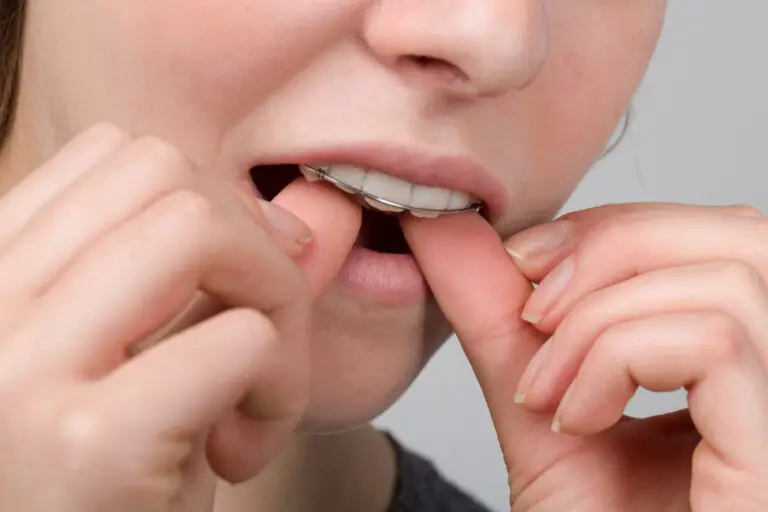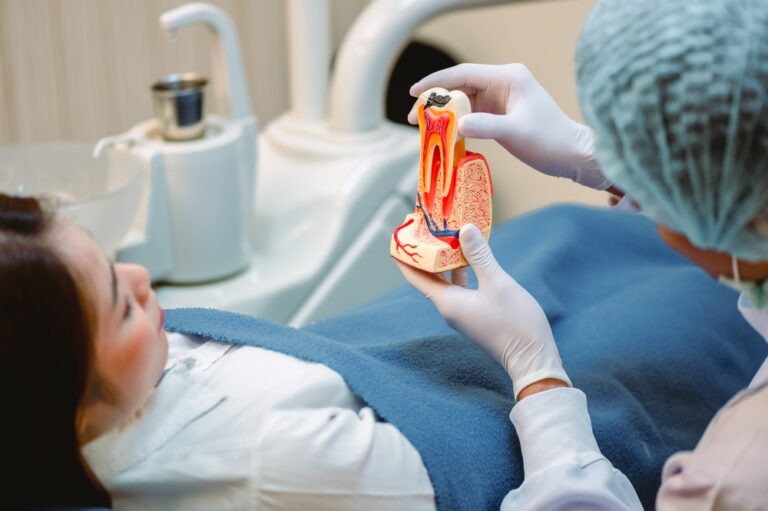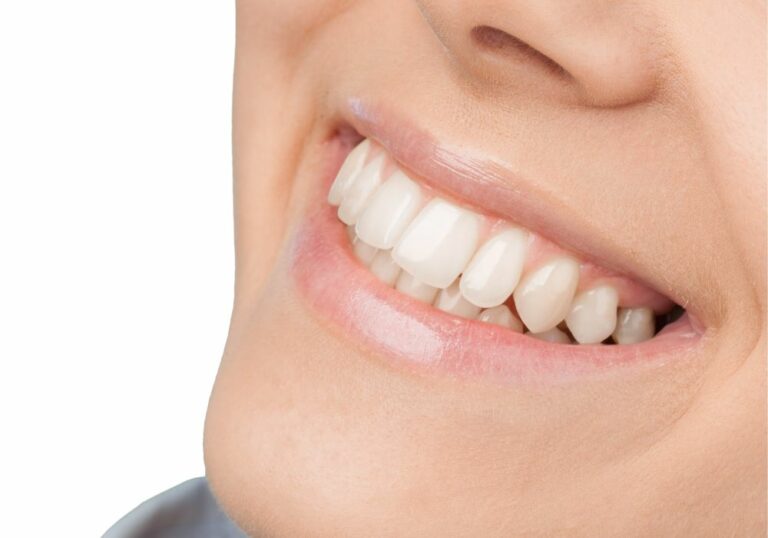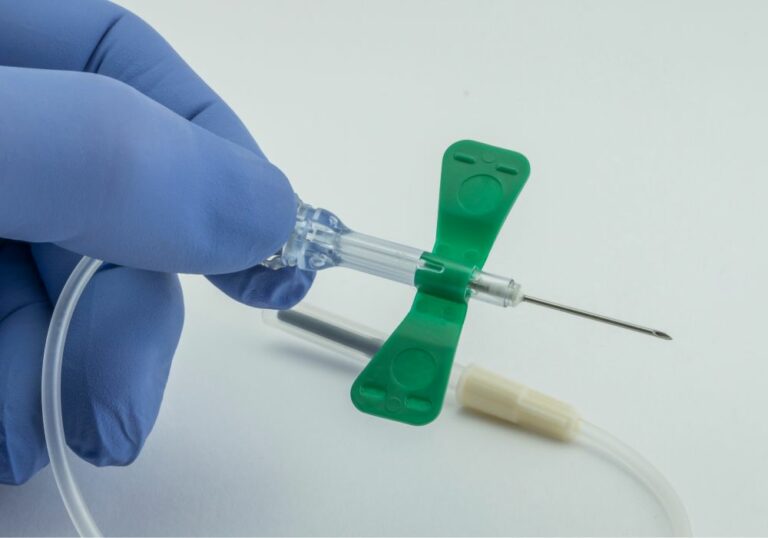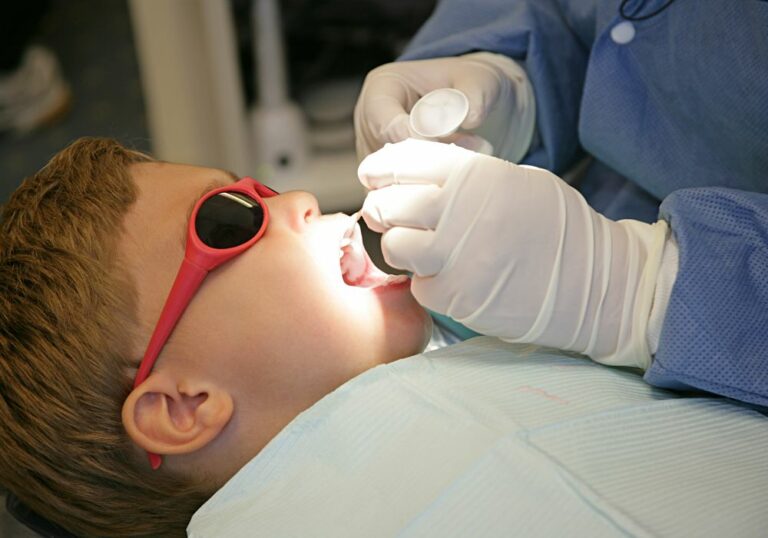If you’ve recently had your wisdom teeth removed, you’re probably wondering when you can start sleeping on your side again. Sleeping on your side can be more comfortable for some people, but it’s important to follow your dentist’s instructions to avoid complications and ensure a smooth recovery. In this article, we’ll explore when it’s safe to start sleeping on your side after wisdom teeth removal.
First, it’s important to understand why you need to avoid sleeping on your side after wisdom teeth removal. When you sleep on your side, pressure is placed on the extraction site, which can lead to pain, bleeding, and swelling. This can slow down the healing process and increase your risk of complications. To avoid these issues, your dentist will likely recommend that you sleep on your back with your head elevated for the first few days after surgery.
So, when can you start sleeping on your side again? The answer depends on your individual situation and how well you’re healing. In general, it’s best to wait at least a few days before attempting to sleep on your side. Your dentist may give you specific instructions based on the extent of your surgery and your overall health. It’s important to follow these instructions closely to ensure a smooth recovery.
Understanding Wisdom Teeth Removal
If you are experiencing pain or discomfort in your mouth, your dentist may recommend removing your wisdom teeth. Wisdom teeth are the last set of molars to emerge in the back of your mouth, and they can cause problems such as overcrowding and infection.
Wisdom teeth removal is a common procedure that millions of people undergo each year. The procedure is usually performed by an oral surgeon or a dentist, and it typically takes about 45 minutes to an hour to complete.
Before the procedure, your dentist will give you anesthesia to numb the area around your wisdom teeth. Depending on the complexity of the extraction, you may receive local anesthesia, sedation, or general anesthesia.
During the procedure, your dentist will make an incision in your gum tissue to expose the wisdom tooth and the bone. Then, they will remove the tooth and clean the area to prevent infection. After the tooth is removed, your dentist will stitch the incision closed and place gauze over the area to help stop bleeding.
After the procedure, you will need to rest and take it easy for a few days. You may experience some pain, swelling, and bleeding, which can be managed with pain medication and ice packs. Your dentist will provide you with detailed instructions on how to care for your mouth and what foods to avoid.
It’s important to follow your dentist’s instructions carefully to ensure that your mouth heals properly and to avoid complications such as dry socket. With proper care, most people can resume their normal activities within a week after wisdom teeth removal.
Post-Surgery Care
After your wisdom teeth removal surgery, it is important to take proper care of yourself to ensure a smooth recovery. Here are some tips to help you care for yourself after surgery:
Take Your Medication
Be sure to take any medications your doctor prescribed to you. This will help fight off possible infections and reduce pain, allowing you to sleep at night.
Use Ice Packs
Use ice packs to reduce swelling and discomfort. Apply the ice pack for 15-20 minutes at a time, with a 10-minute break in between. Repeat as necessary.
Rest and Relax
Rest and relax for the first 24 hours following your surgery. Avoid any strenuous activities or exercise during this time. Keep your head elevated above your heart to reduce swelling.
Eat Soft Foods
Stick to soft foods for the first few days following your surgery. Avoid hard, crunchy, or sticky foods that could irritate the extraction site. Drink plenty of fluids to stay hydrated.
Keep the Extraction Site Clean
Rinse your mouth gently with warm salt water to keep the extraction site clean. Avoid using mouthwash or brushing the extraction site for the first 24 hours.
By following these post-surgery care tips, you can help ensure a smooth and comfortable recovery after your wisdom teeth removal surgery.
When to Start Sleeping on Your Side?

After wisdom teeth removal, it is important to take proper care to ensure a smooth recovery. One of the most common questions people have is when they can start sleeping on their side after the procedure. While sleeping on your side is generally safe, it is important to wait until you have fully recovered before doing so.
It is recommended that you wait at least 24-48 hours after the surgery before sleeping on your side. This will give your body enough time to heal and reduce the risk of any complications. In the meantime, it is best to sleep on your back with your head elevated using pillows.
If you experience any pain or discomfort while sleeping, you can take over-the-counter pain medication such as ibuprofen or acetaminophen. However, it is important to follow the recommended dosage and not exceed the maximum daily limit.
Once you have passed the initial recovery period, you can start sleeping on your side again. However, it is important to be gentle and avoid putting pressure on the surgical site. It is also recommended to use a soft pillow to support your neck and head.
In summary, it is important to wait at least 24-48 hours after wisdom teeth removal before sleeping on your side. Once you have fully recovered, you can resume sleeping on your side but be gentle and use a soft pillow for support. If you experience any pain or discomfort, consult your dentist or healthcare provider for further advice.
Factors Affecting Recovery Time
When it comes to wisdom teeth removal, recovery time can vary from person to person. There are several factors that can affect how quickly you recover from the surgery. In this section, we will discuss some of the factors that can influence your recovery time.
Age and Health
Your age and overall health can play a significant role in how quickly you recover from wisdom teeth removal. Younger people tend to recover more quickly than older individuals. Additionally, if you are in good health, you may experience a faster recovery time than someone who has underlying health issues.
Complexity of Surgery
The complexity of the surgery can also affect how quickly you recover. If your wisdom teeth are impacted or require surgical extraction, your recovery time may be longer than if the teeth were already erupted and could be easily removed. Additionally, if multiple teeth are being removed, you may experience a longer recovery time.
Post-Surgery Care
The care you provide for yourself after surgery can also influence your recovery time. Following your dentist’s post-surgery instructions and taking any prescribed medications as directed can help speed up the healing process. Some tips for post-surgery care include:
- Avoiding smoking or using tobacco products
- Eating soft foods and avoiding hard or crunchy foods
- Using ice packs to reduce swelling
- Rinsing your mouth with warm saltwater to promote healing
By taking care of yourself after wisdom teeth removal, you can help speed up your recovery time and get back to your normal routine as soon as possible.
Potential Risks of Sleeping on Your Side Too Soon
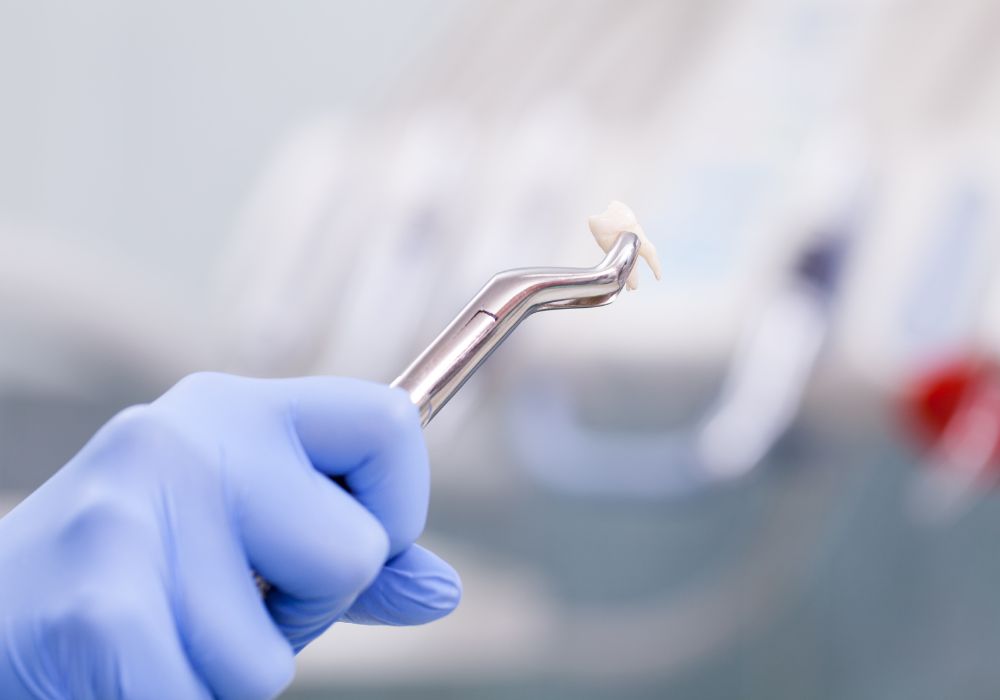
If you’ve recently had your wisdom teeth removed, you may be wondering when it’s safe to sleep on your side again. While side sleeping is generally considered safe, it’s important to wait until you’re fully healed before doing so. Sleeping on your side too soon after wisdom teeth removal can increase your risk of bleeding, swelling, and discomfort.
Bleeding
Sleeping on your side too soon after wisdom teeth removal can increase your risk of bleeding. This is because the pressure from your head can cause blood to pool in the extraction site, which can lead to bleeding. To avoid this, it’s important to wait until any bleeding has stopped before sleeping on your side. If you do experience bleeding, apply firm pressure to the area with a clean, damp cloth for 20 to 30 minutes. If the bleeding persists, contact your dentist or oral surgeon.
Swelling
Sleeping on your side too soon after wisdom teeth removal can also increase your risk of swelling. Swelling is a common side effect of wisdom teeth removal, and sleeping on your side can exacerbate it. To reduce your risk of swelling, it’s important to wait until any swelling has subsided before sleeping on your side. You can also use ice packs to reduce swelling and inflammation.
Discomfort
Sleeping on your side too soon after wisdom teeth removal can also cause discomfort. This is because the pressure from your head can cause pain and discomfort in the extraction site. To avoid this, it’s important to wait until any discomfort has subsided before sleeping on your side. You can also use over-the-counter pain relievers to reduce pain and discomfort.
Overall, it’s important to wait until you’re fully healed before sleeping on your side after wisdom teeth removal. This will help reduce your risk of bleeding, swelling, and discomfort. If you have any questions or concerns about sleeping after wisdom teeth removal, contact your dentist or oral surgeon.
Tips for Comfortable Sleep After Surgery
After having your wisdom teeth removed, getting a good night’s sleep can be challenging. Here are some tips to help you sleep comfortably after surgery.
Proper Pillow Positioning
One of the most important things to consider when sleeping after wisdom teeth removal is proper pillow positioning. Elevating your head can help reduce swelling and promote healing. Use pillows to prop yourself up at a 45-degree angle, with your head higher than your heart.
To achieve this position, you can use a wedge pillow or stack multiple pillows. Make sure your head and neck are properly supported to avoid any strain or discomfort.
Sleeping Upright
Sleeping in an upright position can also help reduce swelling and promote healing. If you have trouble sleeping on your back, try sleeping in a recliner or propped up on pillows.
If you choose to sleep in a recliner, make sure it is comfortable and provides proper support for your head and neck. Avoid sleeping in a position that puts pressure on your jaw or mouth.
Using Ice Packs
Applying ice packs to your cheeks can help reduce swelling and discomfort. Wrap an ice pack in a cloth and apply it to your cheeks for 15-20 minutes at a time. Take a break for 10-15 minutes between applications.
Be sure to never apply ice directly to your skin, as it can cause damage. Use a cloth or towel to create a barrier between the ice pack and your skin.
In summary, proper pillow positioning, sleeping upright, and using ice packs can all help you sleep comfortably after wisdom teeth removal. Remember to follow your dentist’s post-operative instructions and take any prescribed pain medication as directed.
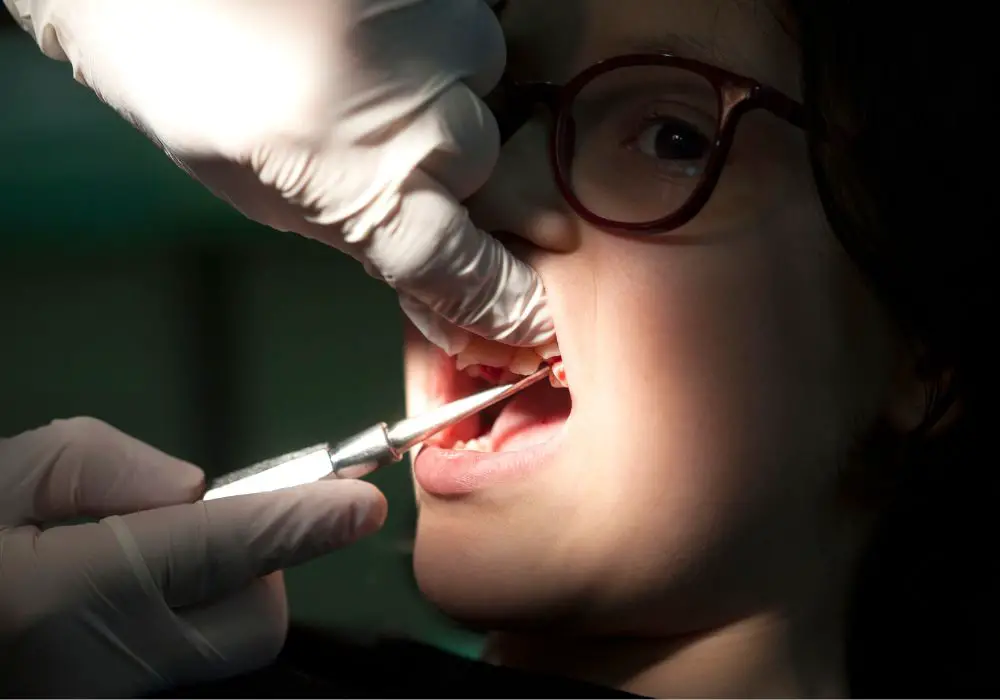
Frequently Asked Questions
When is it safe to sleep on my side after wisdom teeth removal?
It is generally safe to sleep on your side after wisdom teeth removal once the bleeding has stopped and the blood clot has formed. This typically takes about 24 hours. However, it is important to follow your dentist’s instructions and avoid putting pressure on the extraction site.
How long should I sleep sitting up after wisdom teeth removal?
It is recommended that you sleep with your head elevated for the first 24 hours after wisdom teeth removal. After that, you can gradually start sleeping in a more upright position, such as propped up on pillows. However, it is important to avoid lying completely flat for at least a week to reduce the risk of developing dry socket.
What is the best sleeping position after wisdom teeth removal?
During the first few days after wisdom teeth removal, it is best to sleep on your side to avoid putting pressure on the extraction site. You can also prop your head up with pillows to help reduce swelling. After the first few days, you can gradually start sleeping in a more upright position.
How can I prevent dry socket while sleeping?
To prevent dry socket while sleeping, it is important to avoid lying completely flat for at least a week after wisdom teeth removal. Instead, sleep with your head elevated on pillows or in a recliner. Additionally, avoid using a straw or smoking, as these actions can dislodge the blood clot and increase the risk of dry socket.
Is it safe to sleep with gauze in my mouth after tooth extraction?
It is generally safe to remove the gauze from your mouth before going to sleep, as long as the bleeding has stopped and the blood clot has formed. However, you should follow your dentist’s instructions and avoid putting pressure on the extraction site while sleeping.
What day is the worst for wisdom tooth pain?
The first few days after wisdom teeth removal are typically the worst for pain and swelling. However, everyone’s experience is different, and some people may experience more pain or swelling on different days. It is important to follow your dentist’s instructions and take any prescribed pain medications as directed to manage your pain.

